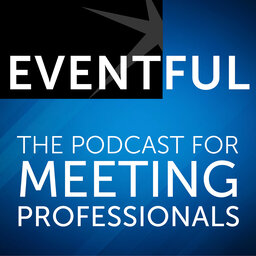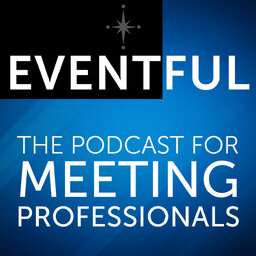Why and How to Make a Net-Zero Pledge in the Events Industry
At the United Nations climate-change conference, COP26, now underway in Glasgow, Scotland, governments and industries from around the globe are presenting the strides they've made toward reducing the carbon footprint of their respective operations. Where does the events industry stand? We asked Fiona Pelham, CEO of Positive Impact Events, to discuss the progress to date and the challenges ahead. (For highlights, see related story [LINK.]
Among topics covered:
• What is COP26 and why should it be important to meeting professionals? (1:50)
• What net zero means, and the significance of pledging to achieve net zero by a given date (3:00)
• How the Race to Zero lets small- to medium-size businesses make a commitment and provide the resources needed to get there (6:00)
• Where meetings industry associations stand on unifying members behind climate initatives (8:20)
• How simply making a commitment helps the events industry at large (11:35)
• Why this is a difficult topic for the travel and events sector (12:10)
• How to help us advance as an industry by asking your suppliers to make the net-zero pledge (21:13)
• Why sustainability awards and designations don't do anything to raise the profile of our sector in business and government (22:25)
• What needs to happen for in-person events to exist in a net-zero future (25:10)
 Eventful: The Podcast for Meeting Professionals
Eventful: The Podcast for Meeting Professionals


